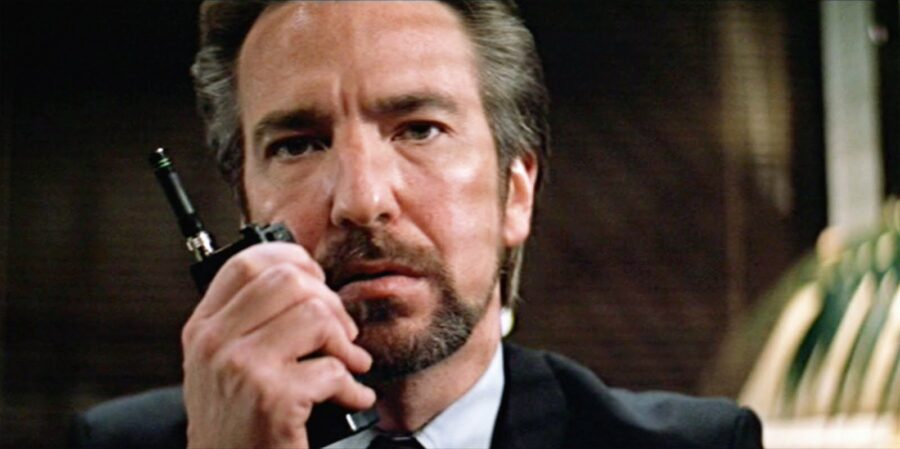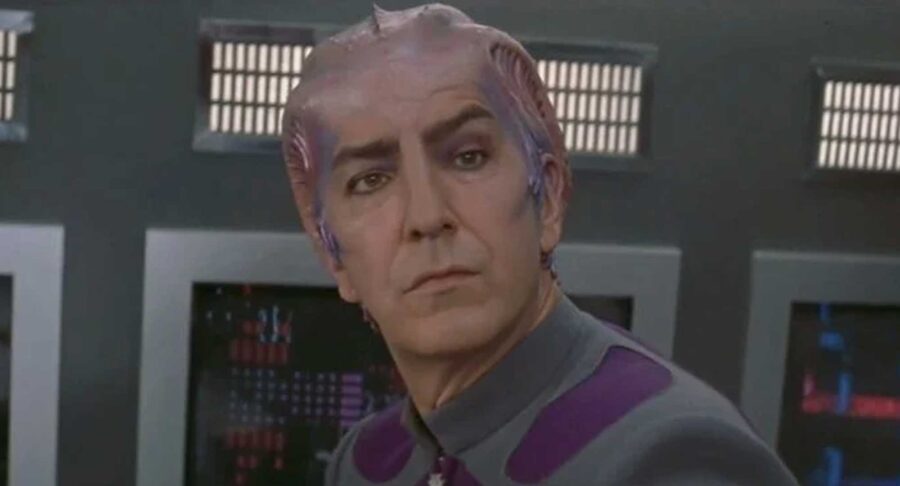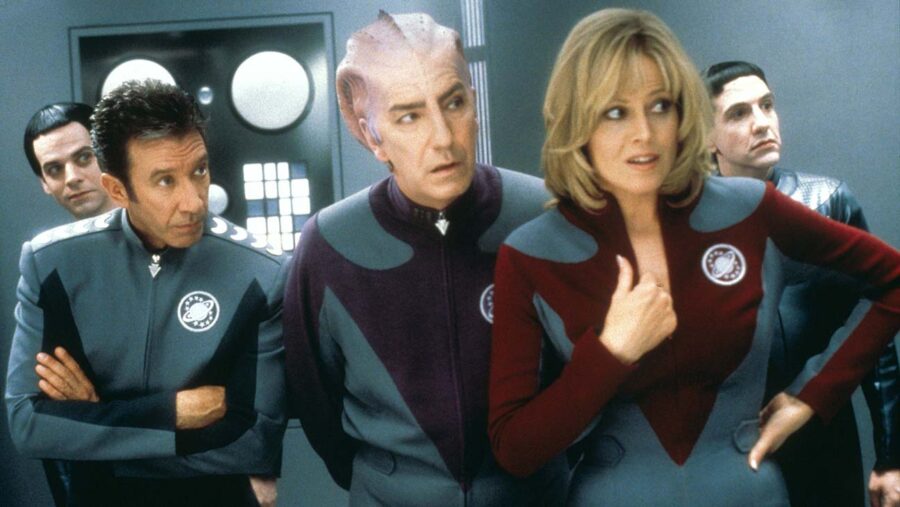Alan Rickman’s Best Movie Is Not Die Hard
This article is more than 2 years old

When Alan Rickman passed away in 2016 at age 69 due to pancreatic cancer, the world lost an icon of more movie genres than most actors could ever hope to perform in. Over the course of his illustrious career, Rickman helped define modern action films, fantasy, and romantic comedies, but one movie stands over the rest. That film is the 1999 science fiction comedy Galaxy Quest, and it is Alan Rickman’s best movie not just for his magnificent performance, but for its unique mixture of humor, action, nostalgia, and genuine sadness.
Galaxy Quest is first and foremost, a parody of Star Trek: The Original Series. But more than that, it is both an homage and a scathing satire of the fan culture that has grown around Gene Roddenberry’s influential science fiction series and how deadly serious people can take it. In this case, some people take it so seriously that they think Alan Rickman is an alien scientist and not a depressed Shakespearian actor who hates his own career.

Alan Rickman stars in the movie as Alexander Dane, a formerly acclaimed British actor now best known for playing a brilliant alien scientist named Dr. Lazarus on a science fiction show titled Galaxy Quest. In the show within the movie, Dr. Lazarus is a clear analog of Star Trek’s Mr. Spock, though Alan Rickman does not seem to share much with Leonard Nimoy except for a distaste for their most famous role.
However, while Leonard Nimoy reportedly reconciled himself to his lifelong association with the Vulcan science officer before his death in 2015, Alan Rickman’s Alexander Dane is not quite there in the movie. Instead, since the cancelation of Galaxy Quest (the show) in the 1980s, Dane and his co-stars have settled into a rut of fan conventions and cheap promos. In particular, Alan Rickman’s character seems to be stuck in a years-long spiral of self-loathing and panic attacks, which could make this a very depressing movie.

Fortunately, Galaxy Quest is a comedy. The main plot of the film involves an alien species with no concept of fiction intercepting the show’s broadcast and interpreting it as historical documents, leading them to think the actors were actually true space heroes. The Thermians (as the aliens are called) recruit lead actor Jason Nesmith (Tim Allen, doing a credible William Shatner impression) to lead them against a violent species of alien ravagers, who then convinces his former co-stars.
In addition to Alan Rickman and Allen, the movie stars Sigourney Weaver, Tony Shalhoub, Daryl Mitchell, and Academy Award winner Sam Rockwell as the former cast of the show. Well, Rockwell is more of a fanboy who gets roped in at the last minute due to over-politeness, but he fits in pretty immediately. In an acidic nod to reality, none of the cast seems to like their former captain all that much and treat him as a pompous, self-important jerk.
While Galaxy Quest is a humorful film and has a lot of fun with the concept that the Thermians recreated the technology seen on the show whether it made sense or not, it is also a strangely touching film. According to Sam Rockwell, Alan Rickman was vital to giving the movie actual dramatic stakes in addition to all the Star Trek parody, which makes sense for one of the most gifted actors of his generation.
In particular, Alan Rickman’s growing relationship with a young alien who has based his entire life philosophy on Dr. Lazarus is the emotional highlight of the movie. While there is plenty of ridiculousness from Alan Rickman in this movie, the scene in which he holds a dying boy in his arms and realizes the impact he has had on him is truly tearjerking. Even in a film full of silly-looking alien costumes and a young Justin Long, Alan Rickman could bring the full weight of his dramatic force to a scene.
Galaxy Quest was a minor success at the box office, but, more importantly, became a cult favorite among science fiction fans. The film’s combination of mockery and affection toward both Star Trek and its fans turned out to be a potent mix, and Galaxy Quest is now as much a part of geek culture as it is a parody. So much of that is due to Alan Rickman’s deep understanding of the balance of drama and comedy, and we have a lot to thank him for.












